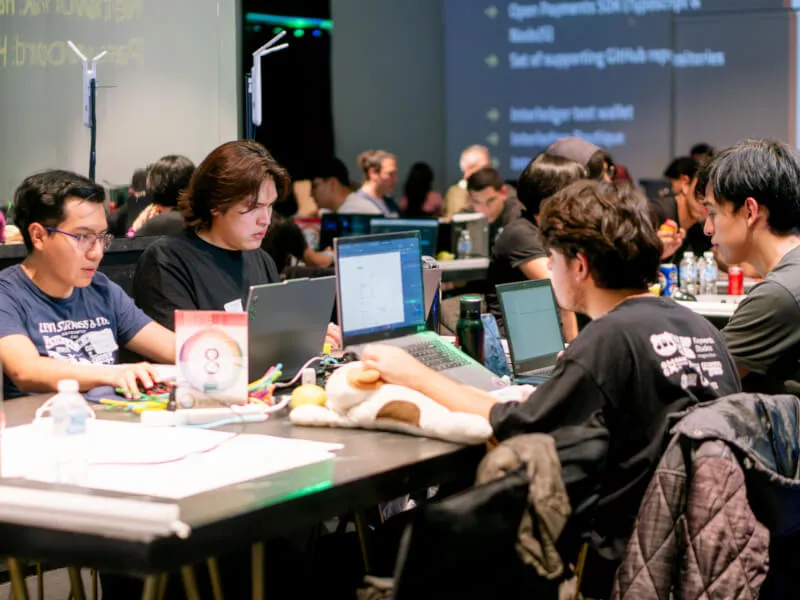
Building real solutions: The Interledger Hackathon Winners 2025
On November 8 & 9, 2025, more than 170 developers, students, designers, and entrepreneurs gathered at InSpark in Mexico City for the Interledger Hackathon. Over 24 hours, 47 teams worked side by side to turn the promise of interoperable payments into working prototypes.
The challenge was clear: how can open-source tools like the Interledger Protocol (ILP) and Open Payments API help reduce cash dependency, lower remittance costs, and improve digital acceptance for small businesses?
Celebrating the winners
Los VibeCoders - VibePayments
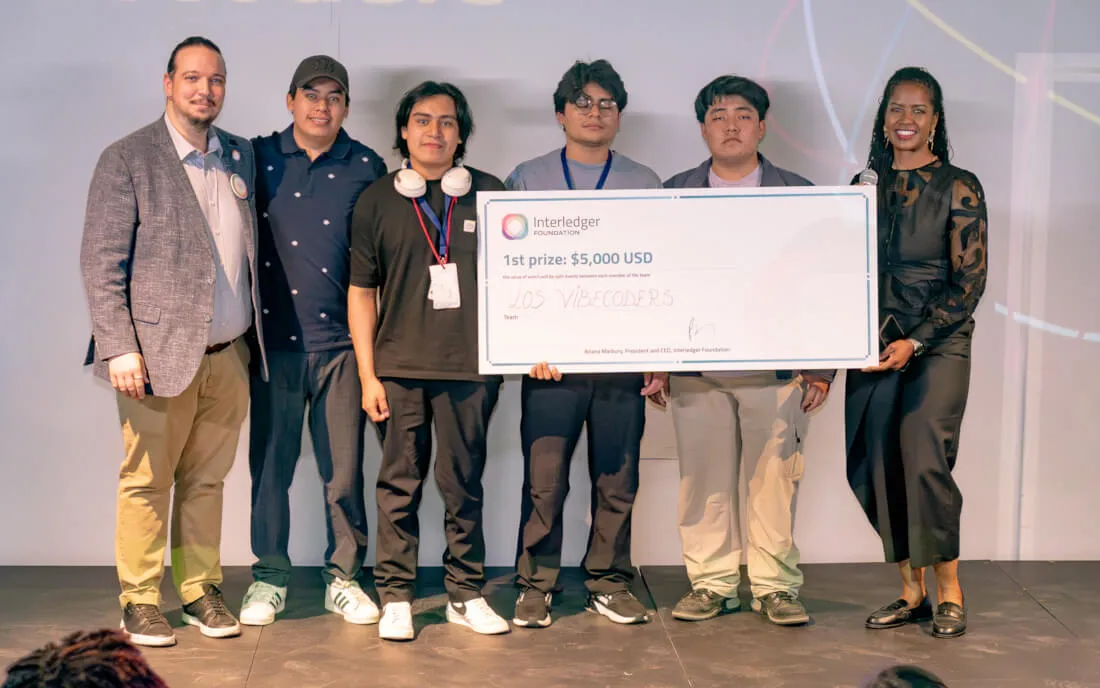
First place went to Los VibeCoders with VibePayments, a cloud-based SaaS platform designed to tackle the barriers of currency exchange, high bank fees, and slow processing times that affect international tourism and global supply chains.
Their solution simplifies global payment management by enabling simultaneous transactions: payrolls, supplier payments, tips, and services, all through ILP. With features like split and merge payments, the platform unifies financial networks and currencies into one interoperable system, allowing instant, secure, and low-cost payments across industries worldwide.
Looking ahead, the team envisions scaling their solution across sectors of the economy, fostering not just financial interoperability but also a fairer distribution of resources globally. As they put it: “We are not only connecting financial systems, but also people, communities, and opportunities. Fostering a new paradigm of global economic equity built on interoperability and open technology.”
Haki Ando - Pagos
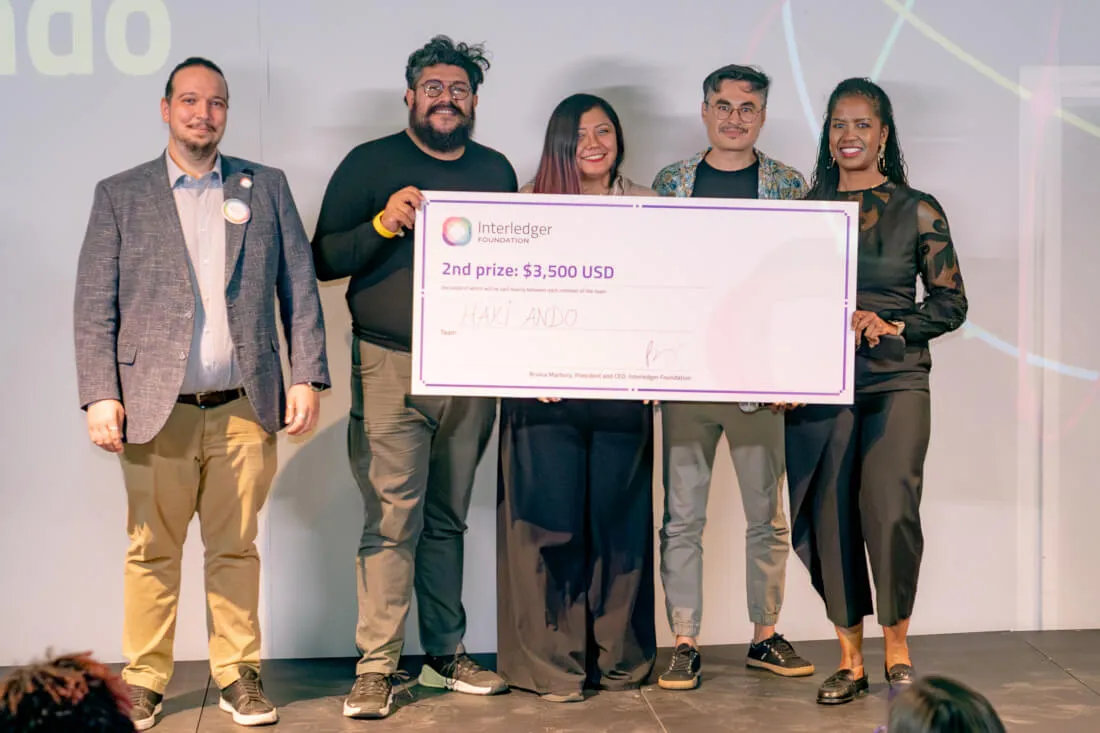
Second place was awarded to Haki Ando for Pagos, a device-less payment system that turns an individual into their own payment method.
Their vision is to eliminate friction in everyday transactions by using biometric identity (face and voice) as the only key needed to authorize payments. This approach transforms daily convenience (no wallet needed on a run, no risk of card cloning) while addressing deeper issues of accessibility. For people with motor disabilities who cannot easily handle a card or phone, Pagos offers fast, dignified, and inclusive payments.
Team Kanzu - Shabaha
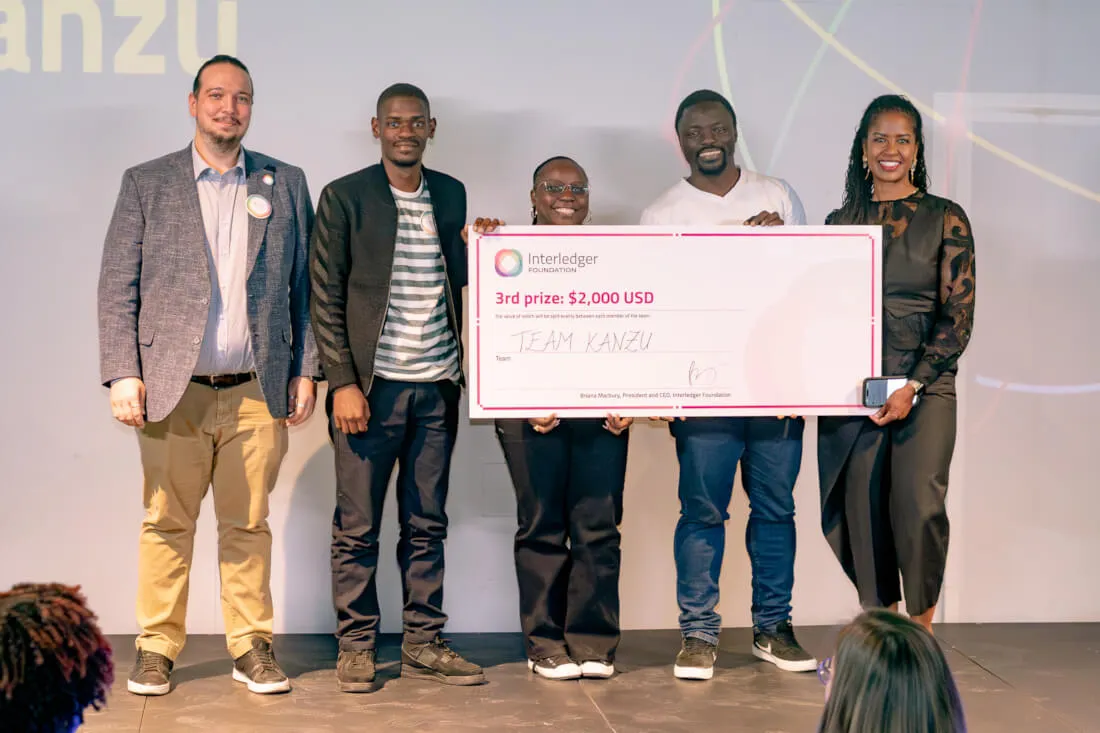
Third place went to Team Kanzu with Shabaha, a platform that bridges education and payments.
Their vision is captured in their rallying call: “Convert learning into earning with Shabaha!” Students earn points as they learn, and funders can sponsor their education with instant payouts via Interledger. Built on the Open Payments API, Shabaha enables direct, instant cross-border payments from funders to students based on learning achievements.
By rewarding progress with tangible financial support, Shabaha demonstrates how open payments can empower learners, create accountability, and open new pathways for education globally.
Community Prize - Máquinas de Boltzmann - Paguito
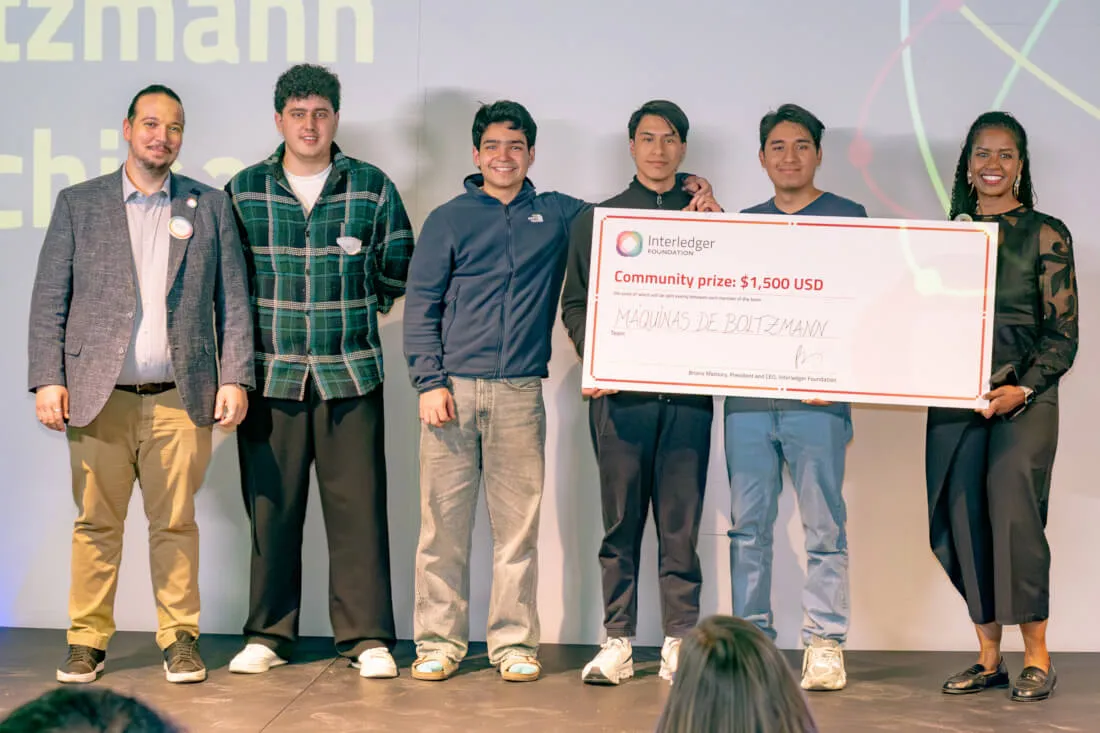
The Community Prize recognized Máquinas de Boltzmann for Paguito, a peer-to-peer payment platform that integrates Open Payments with a WhatsApp AI bot.
Their vision is to make financial transactions as intuitive as everyday conversations. Users simply chat with the bot, which detects transfer requests and triggers payment flows. By combining conversational interfaces with open payments, Paguito highlights how familiar tools can lower barriers to adoption and make digital finance more accessible.
Why this Hackathon matters
Mexico’s payments landscape is often described as a paradox: the industry is technically ready for interoperability, yet cash remains dominant. According to the report, The Internet of Opportunity: Unlocking Financial Interoperability in Latin America by the Interledger Foundation and Finnosummit, the financial industries are technically ready for interoperability, with 63% architectural capacity and 62% team readiness, yet 92% of adults still rely on cash, and SMEs face an average merchant discount rate of 2.0%, more than double Europe’s average.
The hackathon was designed to respond to this gap with practical, testable solutions. As Briana Marbury, President & CEO of the Interledger Foundation, reflects: “Mexico’s tech and financial communities did not just explore payment interoperability; they built prototypes that bring it closer to measurable, real-world use cases across the region.”
Her words were echoed by Rafael Odreman, Head of Strategic Partnerships at Finnosummit, who emphasized the broader impact: “We saw the Interledger Protocol move from a technical concept to a practical tool for financial inclusion. We can build a payments system where sending money is as simple and inexpensive as sending an email, breaking barriers that currently exclude millions of Mexicans and Latin Americans.”
Together, these perspectives highlight the hackathon’s role in shifting open payments from theory into practice.
Behind the scenes
Judges from across technology, finance, and academia reviewed each project for idea quality, strategic impact, and implementation. The panel included Alex Lakatos (Chief Technical Officer, Interledger Foundation), Roberto Valdovinos (CFO, People’s Clearinghouse), Dr. Andrew Mangle (Associate Professor, Bowie State University), Afua Bruce (Executive Advisor), and Sabine Schaller (Engineering Manager, Interledger Foundation).
Looking ahead
For the Interledger Foundation and our partner, Finnosummit, the Hackathon is a starting point for deeper collaboration to make Mexico an innovation hub for open payments in Latin America.
Hackathons like this are not just about competition. They are about building trust in new technologies, testing ideas against real-world challenges, and creating networks of support that last beyond the event.
The 2025 winners: Los VibeCoders, Haki Ando, Team Kanzu, and Máquinas de Boltzmann, showed that when diverse teams come together with shared purpose, they can design solutions that are practical, inclusive, and ready to make a difference.